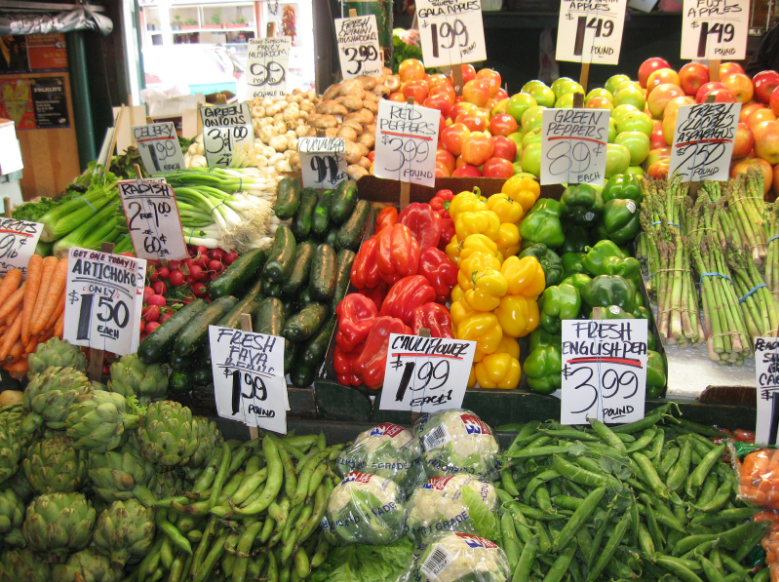From Wikimedia
By Sharon Jones
With the growing emphasis on organic, natural or just plain healthy eating, we've seen a massive boom in the amount of organic grocery stores like Wholefoods. With all the tech start-ups and new gadgets in development, perhaps you want to take a step back, and start a business that's a little more traditional. Here, we'll leave all the growth hacking and techie gimmicks on the shelf, and take you through the steps of opening your own mini-grocery.
Find your Niche
If you want your grocery store to be a success, then you need to establish a niche or specialty for it. I understand the temptation to be a versatile all-rounder, but if you try to compete with the larger groceries in your local area, you're almost certain to fail. Whether it’s food from a specific country or continent, locally sourced, veggie or vegan, you need to establish a niche which will make your business unique and memorable. Do some research on similar stores in your area, find a gap, then set to work on the perfect brand to fill it!
Lease a Space
From Geograph
Obviously, your mini grocery store is going to need a premises to operate out of. Your customers might get a little ticked off receiving packages of mushy, out-of-date vegetables! As a fledgling start-up, your resources are going to be pretty stretched, but take your time looking for a good location - this is going to be one of the most important factors to your overall success. Those first few customers are probably going to be curious passers-by, who are already out shopping for something else. The best location you can find has to be somewhere with a lot of foot traffic; near cafés, book stores, clothes outlets, pretty much anything that isn't a direct competitor! You may have a pretty clear idea about the area you want to set up in, but I recommend keeping an open mind, and expanding your search somewhat. If you can find a location in a spot surrounded by other businesses which aren't competitors, but are closely related to your niche in some way, then you've struck gold!
Find Your Suppliers
When opening a mini grocery, your suppliers will also be a key part of your immediate and long-term success. Start-up costs such as shopping baskets, a tagging system, cash registers and equipment such as the CAS S2000 JR price computing scale are going to be more or less universal. What you really need to pay attention to is the suppliers for the produce itself. For the large majority of your customers, this will be the detail that sets your grocery store apart from all the others. Start networking with local farmers and distributors who fit in with your planned niche, and ask about setting up wholesale accounts with them. Without compromising on your brand identity, try to source as many products as close to the store as possible. This is for a couple of reasons. A: It will keep your shipping costs to a minimum. B: It will open up a powerful marketing opportunity in emphasising your connection to the local community.




